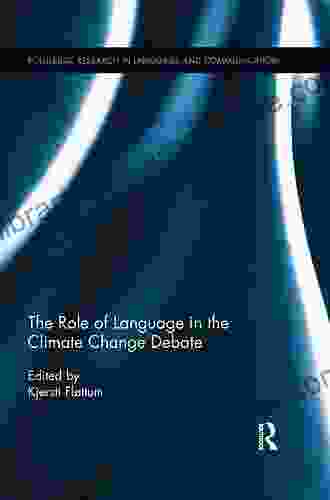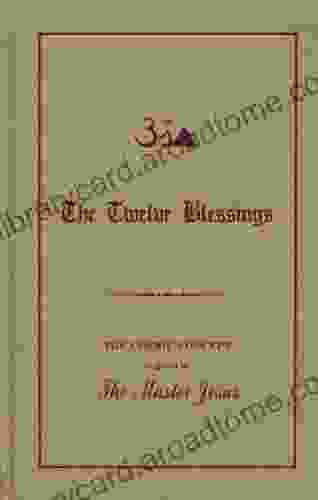The Role of Language in the Climate Change Debate: Deciphering the Discourse and Shaping Effective Communication

In the face of one of the most pressing challenges of our time, the climate change debate has become a global discourse, shaping public opinion, policy decisions, and the urgency of action. However, beyond the scientific consensus on the reality and severity of climate change, there lies a complex linguistic landscape that influences how we perceive, discuss, and respond to this crisis. By examining the role of language in the climate change debate, we can gain valuable insights into the factors that shape our understanding and the strategies that can promote effective communication.
4.9 out of 5
| Language | : | English |
| File size | : | 2712 KB |
| Text-to-Speech | : | Enabled |
| Screen Reader | : | Supported |
| Enhanced typesetting | : | Enabled |
| Print length | : | 194 pages |
Framing the Debate: The Power of Words
One of the most striking aspects of the climate change debate is the way in which language is used to frame the issue. The choice of words, phrases, and metaphors can significantly influence public perception and shape the direction of the discussion. For instance, terms such as "global warming" or "climate change" convey different levels of urgency and potential consequences. Similarly, phrases like "carbon footprint" or "climate refugees" evoke specific associations and emotions, influencing how we think about the issue.
By analyzing the framing of the climate change debate, researchers have identified two dominant discourses: the "scientific discourse," which emphasizes the scientific evidence and the need for urgent action, and the "political discourse," which often downplays the severity of the crisis and focuses on economic concerns. Understanding these framing strategies is crucial for comprehending the diverse perspectives and finding common ground for constructive dialogue.
Discourse Analysis: Uncovering the Nuances
Discourse analysis, a branch of linguistics that examines the use of language in social contexts, provides a powerful tool for understanding the complexities of the climate change debate. By analyzing texts, speeches, and media coverage, researchers can uncover hidden meanings, implicit assumptions, and power dynamics that shape the discourse.
For example, studies have shown that the media often frames climate change in terms of extreme weather events rather than the long-term systemic changes. This framing can lead to a focus on short-term solutions and neglect of the underlying causes of the crisis. Discourse analysis also reveals the use of euphemisms and vague language, which can obscure the urgency and severity of the situation.
Language and Public Opinion
The language used in the climate change debate has a profound impact on public opinion. Research has shown that people's views on climate change are influenced by the way the issue is presented to them. When climate change is framed as a distant or uncertain threat, the public is less likely to prioritize it or support action. Conversely, when the issue is presented as an urgent and imminent crisis, the public is more likely to demand action from governments and industries.
Media coverage plays a significant role in shaping public opinion. Studies have shown that news coverage of climate change often emphasizes negative consequences, such as natural disasters and economic impacts. This can lead to feelings of fear and anxiety, which can make it difficult for people to engage constructively with the issue.
Effective Communication: Bridging the Gaps
Recognizing the power of language in the climate change debate, it is essential to develop effective communication strategies that can bridge the gaps between different perspectives and foster a shared understanding of the crisis. Here are some key principles for effective communication:
- Use clear and accessible language: Avoid jargon and technical terms that may alienate or confuse the audience.
- Frame the issue accurately and honestly: Present the scientific evidence and the urgency of action without resorting to exaggeration or scaremongering.
- Emphasize solutions and opportunities: Instead of focusing solely on the negative consequences, highlight the potential solutions and benefits of climate action.
- Foster dialogue and collaboration: Create spaces for open and respectful dialogue between different stakeholders, including scientists, policymakers, businesses, and the public.
- Use a variety of communication channels: Utilize traditional media, social media, art, and education to reach diverse audiences and engage them in the conversation.
The role of language in the climate change debate is multifaceted and profound. By deciphering the discourse and understanding the linguistic nuances, we can gain valuable insights into the factors that shape our understanding and the strategies that can promote effective communication. By using clear, accurate, and engaging language, we can bridge the gaps between different perspectives, foster a shared understanding of the crisis, and mobilize collective action to mitigate the effects of climate change for a sustainable future.
4.9 out of 5
| Language | : | English |
| File size | : | 2712 KB |
| Text-to-Speech | : | Enabled |
| Screen Reader | : | Supported |
| Enhanced typesetting | : | Enabled |
| Print length | : | 194 pages |
Do you want to contribute by writing guest posts on this blog?
Please contact us and send us a resume of previous articles that you have written.
 Book
Book Novel
Novel Page
Page Chapter
Chapter Text
Text Story
Story Genre
Genre Reader
Reader Library
Library Paperback
Paperback E-book
E-book Magazine
Magazine Newspaper
Newspaper Paragraph
Paragraph Sentence
Sentence Bookmark
Bookmark Shelf
Shelf Glossary
Glossary Bibliography
Bibliography Foreword
Foreword Preface
Preface Synopsis
Synopsis Annotation
Annotation Footnote
Footnote Manuscript
Manuscript Scroll
Scroll Codex
Codex Tome
Tome Bestseller
Bestseller Classics
Classics Library card
Library card Narrative
Narrative Biography
Biography Autobiography
Autobiography Memoir
Memoir Reference
Reference Encyclopedia
Encyclopedia Alec Gilmore
Alec Gilmore Jefferson Adams
Jefferson Adams Alex Libby
Alex Libby Alfred Korzybski
Alfred Korzybski Alan Revere
Alan Revere Midge Newth
Midge Newth Alison Green
Alison Green Joyce Lain Kennedy
Joyce Lain Kennedy Allen J Coombes
Allen J Coombes Dee Smith
Dee Smith Julie Cruikshank
Julie Cruikshank Alex Iantaffi
Alex Iantaffi Damon B Poole
Damon B Poole Amanda Smythe
Amanda Smythe Alex Gough
Alex Gough Alan Calder
Alan Calder Amanda Rofe
Amanda Rofe James Morton
James Morton Devin Abbott
Devin Abbott Matteo Tardelli
Matteo Tardelli
Light bulbAdvertise smarter! Our strategic ad space ensures maximum exposure. Reserve your spot today!
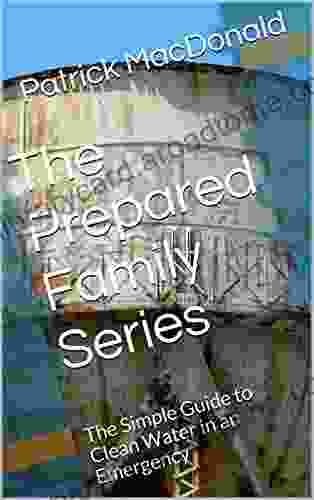
 Geoffrey BlairThe Simple Guide to Clean Water in an Emergency: Your Essential Survival Tool
Geoffrey BlairThe Simple Guide to Clean Water in an Emergency: Your Essential Survival Tool
 Floyd RichardsonDeath With Valiant Strength And Resilience: An Unforgettable Tale of Courage...
Floyd RichardsonDeath With Valiant Strength And Resilience: An Unforgettable Tale of Courage...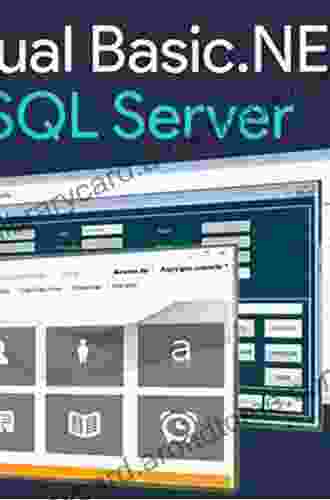
 Clarence BrooksElevate Your Coding Skills: A Comprehensive Guide to Visual Basic .NET Tips...
Clarence BrooksElevate Your Coding Skills: A Comprehensive Guide to Visual Basic .NET Tips...
 Dashawn HayesEssential Bowel Health Meal Recipes: Your Guide to Managing IBD and Restoring...
Dashawn HayesEssential Bowel Health Meal Recipes: Your Guide to Managing IBD and Restoring... Joe SimmonsFollow ·18.1k
Joe SimmonsFollow ·18.1k Dan BellFollow ·5.5k
Dan BellFollow ·5.5k Dawson ReedFollow ·9.9k
Dawson ReedFollow ·9.9k Tennessee WilliamsFollow ·16.7k
Tennessee WilliamsFollow ·16.7k Darnell MitchellFollow ·17k
Darnell MitchellFollow ·17k Finn CoxFollow ·18.1k
Finn CoxFollow ·18.1k Stephen FosterFollow ·8.4k
Stephen FosterFollow ·8.4k Pete BlairFollow ·19.9k
Pete BlairFollow ·19.9k
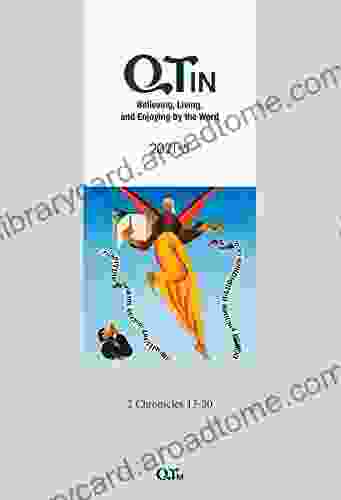
 Joshua Reed
Joshua ReedBelieving, Living, and Enjoying by the Word: Unlock the...
In a world filled with...
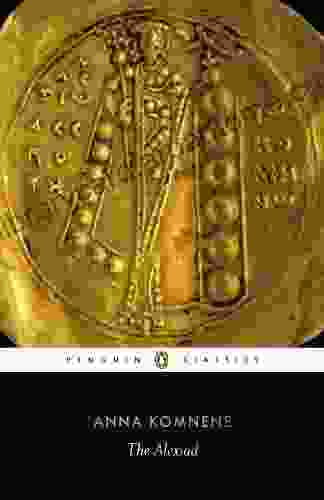
 Cason Cox
Cason CoxUnveil the Extraordinary World of "The Alexiad": A...
Delve into the Heart of Byzantine...

 Junot Díaz
Junot DíazUnveiling the Intricacies of Intellectual Property: Your...
In today's knowledge-driven economy,...
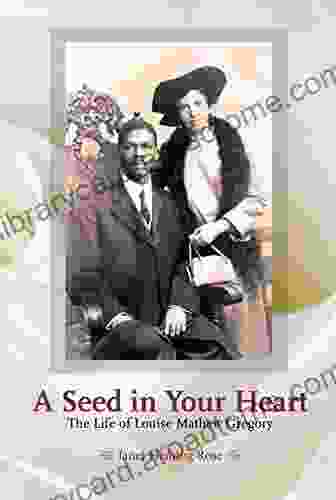
 Aleksandr Pushkin
Aleksandr PushkinThe Life of Louise Mathew Gregory: A Tapestry of Triumphs...
A Woman of Extraordinary Substance Louise...

 Leon Foster
Leon FosterHomemade Lotion For Beginners: Transform Your Skincare...
Step into the world of...
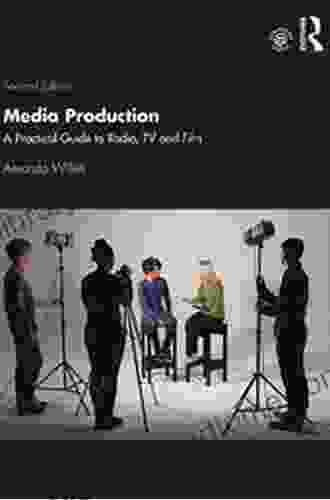
 Terence Nelson
Terence NelsonUnveiling the Secrets of Radio, Television, and Film: An...
: Embarking on a Journey into the...
4.9 out of 5
| Language | : | English |
| File size | : | 2712 KB |
| Text-to-Speech | : | Enabled |
| Screen Reader | : | Supported |
| Enhanced typesetting | : | Enabled |
| Print length | : | 194 pages |


